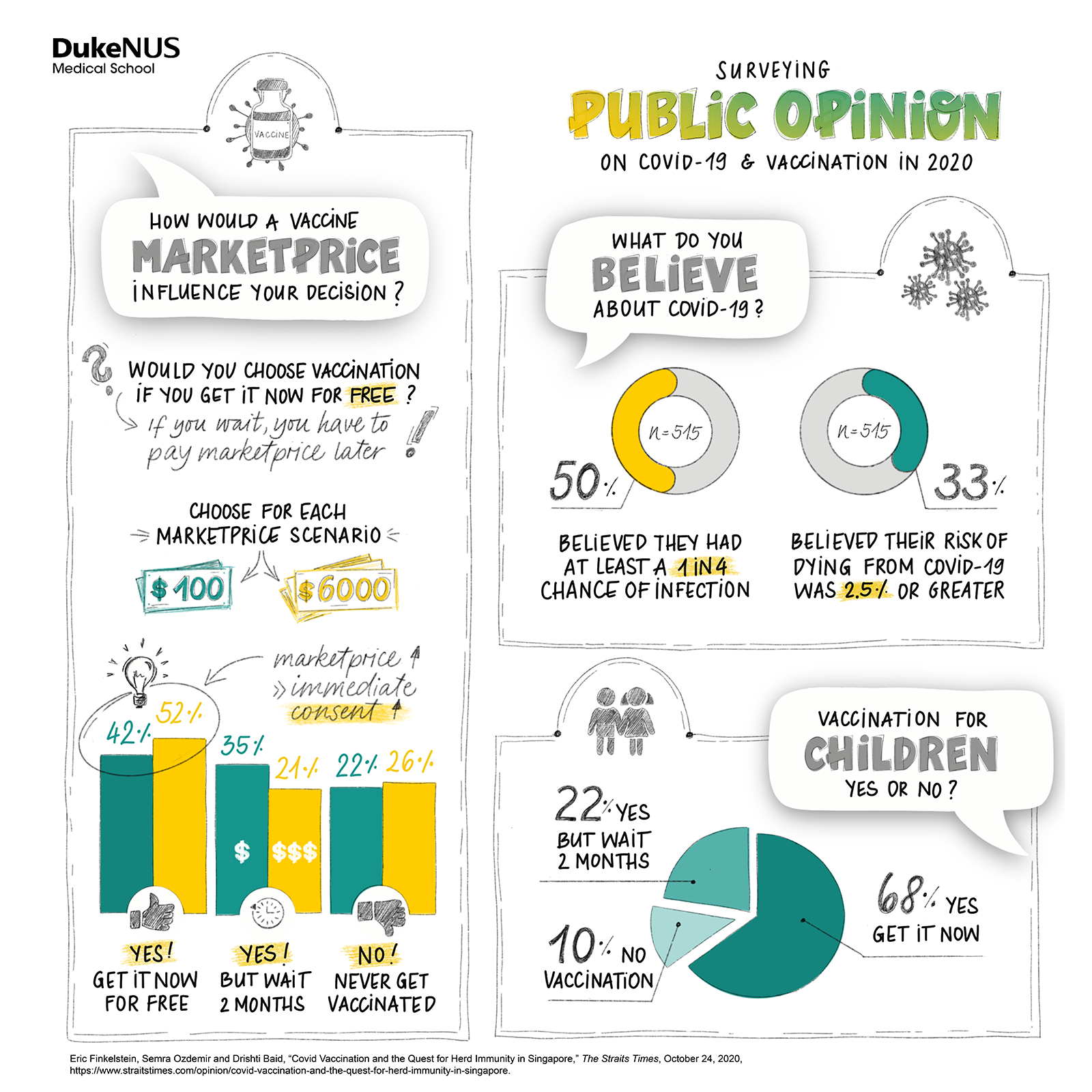Twenty-two per cent of Singapore residents said that they would never choose to get vaccinated, a survey led by Duke-NUS health economist Professor Eric Finkelstein found. Herd immunity, resultingly, may be difficult to achieve locally without a vaccine mandate, Finkelstein and his colleagues argued in an opinion piece published today in The Straits Times.
The refusal the scientists observed was not only driven by price as participants were asked to respond to different scenarios, including opting for an immediate and free vaccine, paying a randomly-varied price two months later or never be vaccinated.

ERIC FINKELSTEIN'S SURVEY OF PUBLIC OPINION ABOUT COVID-19 AND VACCINATION FOUND THAT MANY BELIEVED THEY HAD A HIGH CHANCE OF BEING INFECTED DESPITE LOW COMMUNITY TRANSMISSION RATES AT THE TIME, YET MANY REMAINED SKEPTICAL ABOUT VACCINATION
Forty-two per cent of respondents said that a S$100 price tag would make them get vaccinated for free immediately, Finkelstein and colleagues noted. Another 35 per cent would wait for two months — and pay the vaccine provider — in order to gauge the safety and efficacy of the vaccine. A S$6,000 price tag, on the other hand, had a double-sided effect: it would increase the immediate take-up of the vaccine to fifty-two per cent, but also drive up the percentage of people who would completely refuse a vaccine.
Herd immunity is the point where enough people — generally around 60 to 70 per cent of the population — are immunised against a virus either through prior exposure or vaccination and thereby prevent its onward transmission. The low exposure rate in Singapore, resulting from measures such as quarantines, safe distancing and contact tracing, indicated that a vaccination rate below 70 per cent would be insufficient for stopping the spread of SARS-CoV-2.
“[Vaccine] uptake could be increased by public health messaging campaigns reminding Singaporeans that although vaccination is an individual choice, vaccination benefits all of us due to herd immunity,” Finkelstein and his co-authors wrote. “Combating COVID-19—by heeding measures such as keeping a safe distance from others and wearing masks—is truly a community effort.”